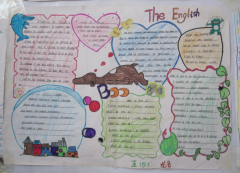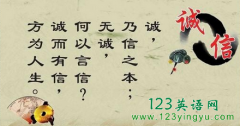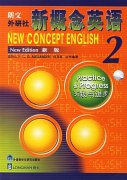高考英语语法精讲——主谓一致
编辑:高中作文网
主谓一致(concord),是指主语和谓语动词要保持人称和数上的一致。英语中动词be的变化形式最多,如I am,You are,He is,We are等。主语I一定要用am的动词形式,这就叫“主谓一致”。
一、 主谓一致的三个原则
主谓一致涉及三个基本原则,即语法一致原则(principle of grammatical concord)、意义一致原则(principle of notional concord)和就近原则(principle of proximity)。
A. 语法一致
语法一致是指主语和谓语在单复数形式上的一致关系,主语为单数形式,谓语动词用单数形式;反之,谓语动词用复数形式。
My child has no intention of spending a vacation with me. 我的孩子不想与我一起度假。
My children have no intention of spending a vacation with me. 我的孩子们不想与我一起度假。
B. 意义一致
意义一致是说谓语动词的单、复数要取决于主语所表达的概念,而不取决于表面上的语法标记。
1. 主语形式虽为单数,但意义为复数,谓语动词用复数。
The only people who are interested in the book seem to be lawyers. 唯一对这本书感兴趣的人好像是律师。
The majority of primary school teachers are women. 大多数小学老师都是女的。
2. 主语形式为复数,而意义上却是单数,谓语动词用单数。
No news is good news. 没有消息就是好消息。
Billiards is becoming more and more popular in some cities. 桌球在一些城市里越来越受欢迎。
C. 就近原则
就近原则是指当主语由两个或两个以上名词或代词组成时,谓语动词的数要与它紧邻的名词或代词的数一致。
There is a square table and some chairs in the center of the dining-room. 餐厅中央有一张方桌和几把椅子。
Either your students or William knows this. 不是你的学生就是威廉知道这件事。
注意:
一般说来,究竟何时采用何种原则,应视英语习惯用法而定。但在实际使用中,如果对上述三种原则捉摸不定,遵循语法一致的原则是一种比较稳妥的方法。
二、 并列主语的主谓一致
A. 由and 连接的并列主语
1. 用and(或both... and)连接并列主语时,谓语动词通常用复数。
A hammer and a saw are useful tools. 榔头和锯子都是有用的工具。
Both industry and agriculture have been greatly developed these years. 这几年工农业大大地发展了。
①当and连接的两个名词是指组合到一起的一件完整的或成套的东西,或表示同一个人或一种概念时,谓语动词要用单数形式。
The writer and teacher is speaking at the meeting. 这位教师兼作家正在会上发言。
A needle and thread was given to her, but she could not sew the button on. 针线给了她,但她不会把钮扣缝起来。(a needle and thread 作为同一件东西对待)
Going to bed early and getting up early is a good habit. 早睡早起是个好习惯。(going to bed early and getting up early 被看成同一概念)
Bread and butter is his usual breakfast. 他经常以黄油面包当早餐。
A cart and horse was seen in the distance. 远方看见一辆马车。
必背:
英语中并列结构表示整体概念的有:
iron and steel 钢铁
law and order 治安
bread and butter 黄油面包
a watch and chain 一块带链的表
a knife and fork刀叉
a coat and tie配有领带的上衣
aim and end 目的
truth and honesty 真诚
2. 一个名词为几个并列形容词所修饰时,这时主语和谓语动词的一致关系一般遵循语法一致的原则。
Clever and slow students are treated alike. 聪明的和迟钝的学生都受到相同的对待。
A black and white kitten was found in the garden yesterday. 昨天在花园里发现一只黑白色的小花猫。
比较:
A black and a white dogs are playing in the yard. 一只黑狗和一只白狗正在院子里玩。(两只狗)
A black and white dog is playing in the yard. 一只黑白花狗正在院子里玩。(一只狗)
3.在each... and each ..., every...and every..., no...and no...等结构之后,谓语动词用单数形式。
Each boy and each girl has an apple. 每个男孩和女孩都有苹果。
Every hour and every minute is precious. 每一小时,每一分钟,都很宝贵。
No bird and no beast is seen on the lonely island. 荒岛上既看不到鸟也看不到野兽。
4. 带有并列动词的what从句作主语时,要根据意义一致的原则决定动词的数。
What he says and does do not agree. 他的言行不一致。(具体指他说的话和他做的事)
What he says and does does not concern me. 他的言行与我无关。(泛指他的为人)
5.在某些成语中,一些并列主语用and相连时,其后谓语用单数形式。
All work and no play makes Jack a dull boy. 光工作不玩耍,聪明的孩子也会变傻。
Early to bed and early to rise makes a man healthy, wealthy and wise. 早睡早起使人健康、富有、聪慧。
B. 以or, either...or, neither...nor, not...but, not only...but also等连接的名词(代词)作并列主语时,谓语动词的单复数应根据就近一致的原则。
Neither he nor I am willing to go shopping today. 他和我今天都不愿去购物。
--Are either you or he to go there --是你还是他将去那里?
--Neither is. --一个也不去。
Not only the Writer brothers but also their father was there. 不只是莱特兄弟在那里,连他们的父亲也在。
Not the students but their teatrers but also their father was there.
被邀请去参加晚会的不是学生(们),而是他们的老师。
C.主语后跟有as well as, as much as, no less than, along with, like, rather than, together with, besides, including, in addition to等引导的词组时,其谓语动词的单、复数按主语的单、复数而定,也就是说,谓语动词的数不受这些词组的影响。
The teacher as well as the students was reading in the library. 这位老师和学生们一起在图书馆阅读。
The students as well as the teacher were reading in the library. 学生们和这位老师一起在图书馆阅读。
The manager, rather than the workers, is responsible for the loss. 损失的责任应由经理而不是工人们来承担。
Nobody but three policemen was on the spot. 当时只有三个警察在现场。
三、 单一主语的主谓一致
单数的主语跟单数的动词,复数的主语跟复数的动词,这是符合语法一致的原则。但在实际运用中,往往会出现较为复杂的情况:
A. 形复意单的名词作主语
形复意单的名词作主语(即形式为复数,意义为单数),按意义一致的原则,用作单数意义时,谓语用单数,反之,谓语用复数。
1. 许多学科名称,如mathematics, physics, economics, politics等,以及news等名词作主语时,动词用单数。
Physics is required of every student in our school. 物理是我校每个学生的必修科目。
News is traveling fast nowadays. 当今新闻传播得很快。
2. 用作国名、组织机构、书名、报刊名等复数形式的专有名词作为整体对待,谓语用单数。
The United Nations has passed a resolution to lift sanctions against Iraq. 联合国通过了解除对伊制裁的决定。
The Times reports the news of the strike. 时代杂志报导了罢工的消息。
Great Expectations was written by Dickens in 1860. 《远大前程》是狄更斯于1860年写的。
注意:
如果山脉、群岛、瀑布等名称作主语时,谓语动词用复数。
The Great Lakes lie between the USA and Canada. 五大湖在美国和加拿大两国之间。
The Philippines are in the western Pacific Ocean southeast of China. 菲律宾群岛在中国东南太平洋西部。
The Niagara Falls are the falls on the Niagara River. 尼亚加拉瀑布位于尼亚加拉河上。
3. 一些形复意单的名词,包括有成双成套部分的衣物或工具名称,作主语时,谓语用复数。
My blue trousers have been worn out. 我的蓝裤子已经穿破了。
His glasses are new. 他的眼镜是新的。
注意:
这些名词如用a pair of 修饰时,谓语动词用单数。
The shoes are under the bed. 鞋在床下。
The pair of shoes is under the bed. 这双鞋在床下。
4. 单、复数同形名词作主语时,按意义一致的原则,用作单数意义时,谓语用单数;用作复数意义时,谓语用复数。这类名词有:sheep, deer, fish, means, works, species, Chinese, Japanese等。
The (This) glass works was set up in 1986. 这家玻璃厂建于1986年。
The (These) glass works are near the railway station. 这些玻璃厂在火车站附近。
This species of rose is very rare. 这种玫瑰很稀有。
The species of fish are numerous. 鱼的种类很多。
Sheep are raised for wool. 养羊是为了剪毛。
There is a sheep under the tree. 树下有一只绵羊。
比较:
当这类名词前有a, such a, this, that, every修饰时,谓语用单数;有all, such, these, those修饰时,谓语用复数。
Every means has been tried out without much result. 每一种方法都试过了却没什么结果。
All means have been tried out without much result. 所有方法都试过了却没什么结果。
B. 集合名词作主语
集合名词表示有若干个体组成的集合体,如army, audience, class, club, company, crowd, government, group, party, population, team, union等。
1. 集合名词作主语时,若表示整体概念,谓语动词用单数,若表示构成该集合体的成员,则谓语动词用复数。
His family are waiting for him. 他的家人正在等他。
But the man's family was small-only himself and his wife. 但那人的家庭很小,只有他本人和妻子。
One third of the population here are workers. 这里人口中有三分之一是工人。
The population of the earth is increasing every year. 地球上的人口每年都在增长。
2. 有些集合名词,如cattle, folk, people, police, youth等,作主语时,谓语动词用复数,即所谓的“形单意复”。
The police have caught the thief. 警察已经抓住了小偷。
The cattle are grazing in the field. 牛在田野里吃草。
Youth today are quite different from 20 years ago. 现在的年轻人和20年前大不一样。
Some folk are never satisfied. 有些人从不知足。
比较:
几组集合名词作主语的句子。
The team is well organized. 这个队组织得很好。
The team are all tough players. 这个队的队员都很强壮。
All the class were jumping with joy. 全班同学都高兴地跳了起来。
The class is made up of 54 students. 这班由54名学生组成。
The young couple is happy. 这对年轻夫妇很幸福。
The young couple are quarrelling with each other. 这对年轻夫妇正在吵架。
The village is at the foot of the mountain. 这个村子在山脚下。
All the village are out to greet him. 全村人都出来欢迎他。
3.有些无生命(表示物)的集合名词作主语,谓语用单数。
All the furniture in my room is new. 我房间里的家具都是新的。
Warm clothing is necessary in cold climates. 在寒冷的气候中,保暖的衣服是必需的。
The machinery is driven by electricity. 这些机器是由电力驱动的。
Has your luggage arrived yet 你的行李已经运到了吗?
A lot of hiking equipment is needed here. 这里需要大量徒步旅行的装备。
[1] [2] 下一页








